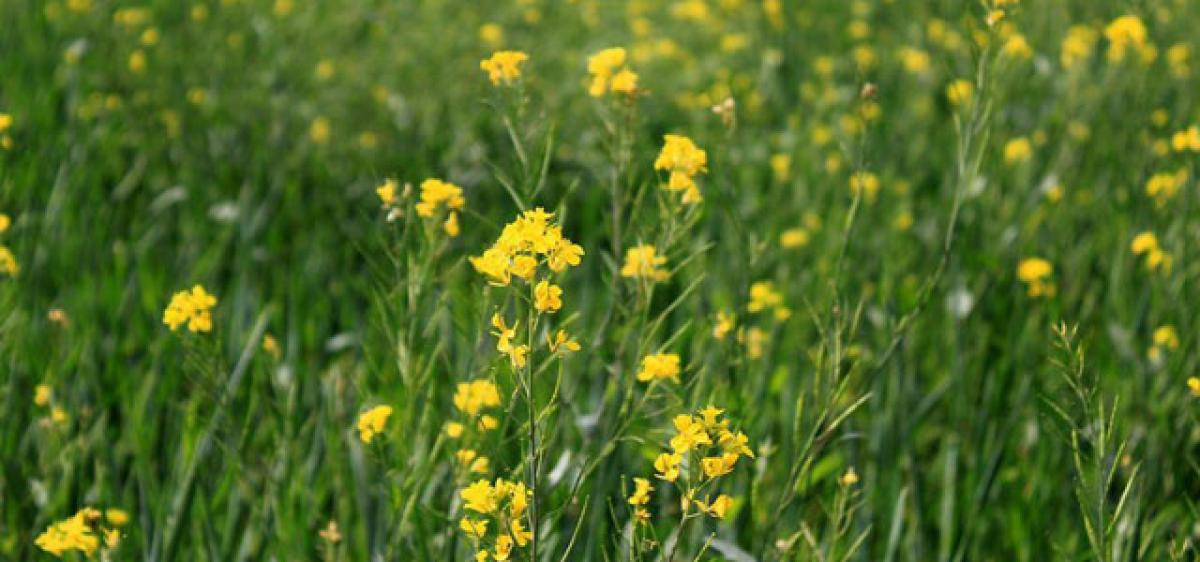Live
- Congress hates Hindus and Hindu festivals: PM Modi
- IMD predicts rainfall in Gujarat for next week
- Rahul-Akhilesh rally in UP: A marriage of convenience?
- National Technology Day and future of STEM careers
- Congress Disavows Mani Shankar Aiyar's Call For Talks With Pakistan: BJP Criticizes Party's Stance
- PM Modi Takes Aim At Sharad Pawar and Uddhav Thackeray, Suggests Alliance With Rival Factions
- Supreme Court Grants Interim Bail To Arvind Kejriwal In Money Laundering Case Tied To Delhi Liquor Policy
- Khalistani Separatist Amritpal Singh Files Nomination For Lok Sabha Elections From Jail
- India’s forex reserves surge by $3.7 bn to touch $641.6 bn mark
- World Lupus Day 2024: Date, History, Significance, and Facts
Just In

On May 11, the Genetic Engineering Appraisal Committee (GEAC), a body of the Environment Ministry that evaluates genetically modified crops, recommended the commercial use of GM mustard. India was just a step away from allowing adoption of a genetically modified food crop for the first time.
On May 11, the Genetic Engineering Appraisal Committee (GEAC), a body of the Environment Ministry that evaluates genetically modified crops, recommended the commercial use of GM mustard. India was just a step away from allowing adoption of a genetically modified food crop for the first time. The recommendations of the technical committee have been pending approval from the Union Environment Minister Anil Madhav Dave who passed away on Thursday (May 18).
Quick Read
- There’s a possibility of the new Environment Minister delaying a decision on GM Mustard until the Supreme Court gives its verdict
- Government has now been challenged to participate in a public debate on the use of such genetically modified crops
While those endorsing GM Mustard (Dhara Mustard Hybrid 11) believe that this transgenic crop is resistant to pests and diseases and can generate better yields, the poor experience of BT cotton, the only other GM crop permitted in India, has made farmers and agricultural experts more sceptical.
However, GM crops are at the core of Modi government’s plans for pushing growth in the biotechnology sector. The government is also putting its bets on GM Mustard for boosting farm productivity in India. Whoever fills in the position of Environment Minister has to come up with a decision before the next sowing season, which is just four months away.
Decision on hold
A parliamentary standing committee, headed by Congress leader Renuka Chowdhury, has reportedly asked the environment ministry to hold clearance for commercial use of GM mustard crop as the panel is still reviewing the issue after a number of civil society groups complained against it. According to sources, there’s a possibility of the new environment minister delaying a decision until the Supreme Court gives its verdict in cases that question the safety of GM crops. No date has been issued by the court for giving its verdict.
Questions that need to be answered
If Prakash Javadekar, Union Minister of Ministry of Human Resource Development, is given an additional portfolio of environment minister, which he was handling before Dave took charge, he not only has to respond to allegations that the entire process of approving GM Mustard was unscientific but also answer the questions being raised on how the GM crop can increase domestic production of edible oil and reduce import bill, when it itself is not high-yielding.
In February 2016, Javadekar had said that the government won’t impose GM Mustard on people and a decision will not be taken at the cost of people’s health. Bihar chief minister Nitish Kumar recently raised concerns over the GM technology being commercialised by the multinational seed companies, leaving millions of farmers at the mercy of these seed companies. Moreover, there’s no provision for liability and compensation in the Seed Act if such risky technologies cause damage to farmers and the environment.
As the cry for rejecting GM Mustard in the public interest grows louder, government has now been challenged to participate in a public debate on the use of such genetically modified crops. Presently, experts and farmers’ groups are harping on the fact that low productivity has never been a problem with mustard, but the failure to get at least the minimum support price (MSP) that the government announces. The new minister has to allay concerns of mustard-growing states, farmers’ organisations and organic farming communities, just like Dave had assured while meeting the protesters a day before he passed away. (Courtesy: Down To Earth)

© 2024 Hyderabad Media House Limited/The Hans India. All rights reserved. Powered by hocalwire.com







